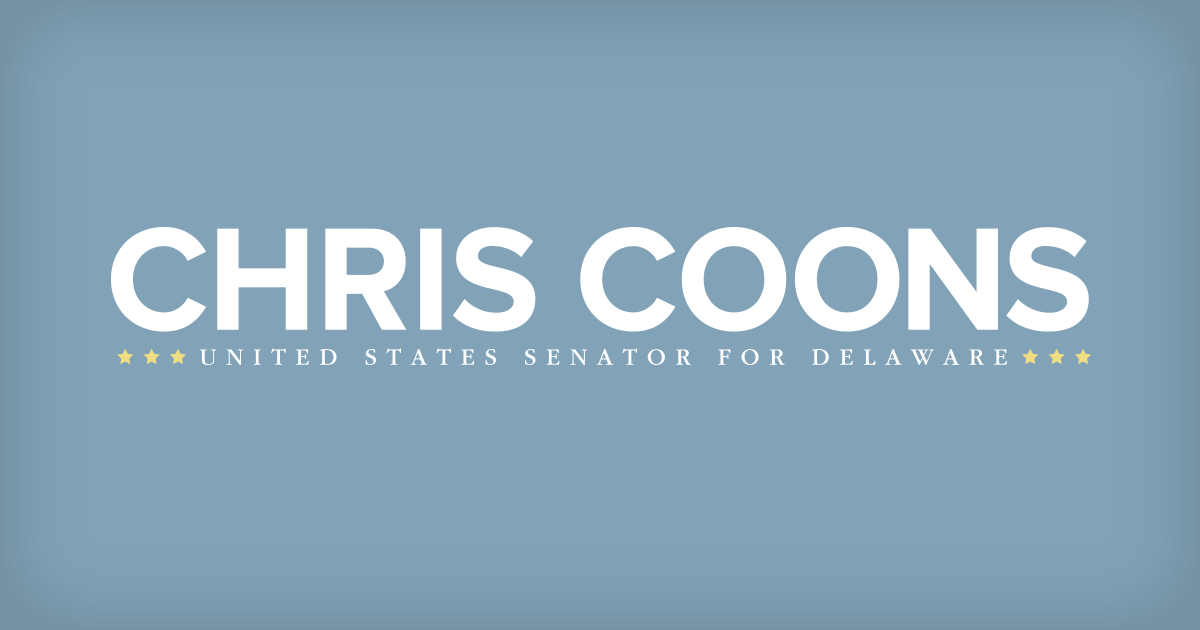Source: United States Senator for Delaware Christopher Coons
WASHINGTON – U.S. Senator and Chair of the Senate Judiciary Subcommittee on Intellectual Property Chris Coons (D-Del.) chaired a hearing today focused on exploring the foreign threats to U.S. intellectual property (IP) alongside U.S. Senator and Ranking Member Thom Tillis (R-N.C.). During the hearing, entitled “Foreign Competitive Threats to American Innovation and Economic Leadership,” Senator Coons welcomed leading IP experts to discuss the legal and illegal means foreign competitors and adversaries use to try to supplant American innovation and the ways we can improve the U.S. IP system to counter these foreign threats.
Senator Coons has been an advocate of protecting and strengthening U.S. IP and has introduced several bills during the last two Congresses that would make U.S. IP law more reliable, effective, and predictable, including the STRONGER Patents Act and the SHOP Safe Act.
A video and transcript of Senator Coons’ opening remarks are available below.
WATCH HERE:
Senator Chris Coons: This hearing will come to order. I’d like to thank our four witnesses for participating today. I’d like to also thank Ranking Member Tillis and his staff for working so closely together with me and mine on a consensus basis. You and your team, Senator, have been a great partner on these issues, and I thank you for your partnership and leadership. Today, we’re going to explore foreign threats to American innovation and economic leadership.
This is a timely and critical topic, and I’m looking forward to a productive conversation. America’s leadership on the global stage depends on our ability to foster and protect innovation and creativity, both at home and abroad. Our competitors and adversaries recognize this fact. China, for example, has been trying now for decades to unseat America as the world’s innovation superpower. To do so, the Chinese government and companies collaborate to acquire foreign technology and create domestic innovation industries. This isn’t a surprise, as IP drives economic growth. The USPTO [U.S. Patent and Trademark Office] reported that in 2019, IP-intensive industries — things like computer technology, pharmaceuticals, entertainment — accounted for nearly 50 million American jobs and $7.8 trillion in economic value, representing 40% of our GDP.
Innovation is a key driver for our competitiveness and our national security. China’s focus on IP raises national security concerns and questions about how China is manipulating rules-based international systems to its own advantage. We’ll explore those concerns and questions today with our panel of witnesses. China has pursued innovation and economic supremacy in part by using illegal means. Brazen trade secret theft and economic espionage by China are well-documented. According to the Department of Justice, approximately 80% of economic espionage cases and prosecutions involve trade secret theft by the Chinese government or its agents.
Trade secret theft has touched my own state of Delaware. Our oldest or perhaps best-known company, DuPont, had a Chinese national steal trade secrets protecting their innovative titanium dioxide production technology and sell the secrets to a Chinese state-owned company for $30 million.
We also need to be concerned about the threats posed by counterfeit goods, often sourced from abroad. In 2021, four-fifths of all counterfeit goods entering the United States originated in China. Although we seized $3 billion of counterfeit goods at the border last year, this amounts to a small fraction of the total. These counterfeit products can be unsafe and harm consumers. As Co-Chair of the Congressional Trademark Caucus, alongside Senator [Chuck] Grassley [R-Iowa], I know just how challenging and dangerous counterfeits can be. For example, prescription drugs that are counterfeit may not contain the active ingredient or, even worse, can contain deadly elements like fentanyl. Fake airplane parts widely found in service centers around the world can increase the chances that a plane malfunctions or crashes.
Beyond illegal means, China has increasingly used legal processes to unseat America as the world’s economic and innovation leader. Although these means haven’t received as much media attention as illegal activities, they’re equally as harmful and more difficult to combat. China has manipulated standard-setting boards and flooded the USPTO with trademark and patent applications to slow down all of its work.
The threats to our economic leadership and our innovation ecosystem aren’t just from China. Other countries, like India, have also been inconsistent in their IP protection and enforcement, for example. At the same time, emerging weaknesses in our own IP system have made it more difficult for rights holders to assert their rights, protect themselves, and safeguard their IP from either domestic or foreign threats.
Patents are today easier to challenge in PTAB [Patent Trial and Appeal Board] trials than in district courts. Patent owners who prevail in litigation can no longer rely on securing permanent injunctions to prevent ongoing infringement. I also remain concerned about unresolved issues around the scope of eligible subject matter or patentability. More than a decade after the Supreme Court waded into patent eligibility law, confusion reigns about what areas of innovation are still eligible for patent protection. Critical technologies like medical diagnostics and software have been excluded from protection here, but qualify for patent protection in Europe and China.
These and many other challenges have led to the slipping stature of our IP system on the global stage and jeopardize long-term investments in research. I worry that China and other adversaries and competitors will exploit our system for their advantage. So, I’ve worked hard on a variety of bills, bipartisan legislative proposals, to address these concerns, and I will reference them today and look forward to exploring them with my Ranking Member and other members of this subcommittee. With Senator Tillis’ cooperation — bless you, Senator — we’ve assembled a great panel with a diversity of views and perspectives to grapple with these and other issues. I’ll introduce them shortly, but will now turn over to Senator Tillis for his opening statements.
###
